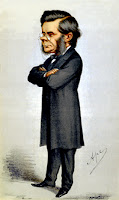Here is what I'm thinking...
- She walks daily. Even if its just from room to room in her house or in her own gardens. A lot of ladies would also walk the parks, walk while shopping.
- She dances at least once or twice a week (if not much more!). There are dancing lessons as well as balls.
- She rides a horse several times a week--a good workout for the hips, buttocks, thighs, and her arms.
- She takes the stairs. She would walk up and down the stairs several times a day.
- There was no access to sodas, candy bars and extremely refined products. Most sweets were made using more "whole" products (but even these would give a girl a few more unwanted pounds if eaten in the extreme). And speaking of whole foods--she wouldn't eat the processed foods we consume today.
- She was taught from an early age to eat smaller amount so food--it was more lady like.
- The portion sizes were smaller.
- She drank tea, which has been linked with a faster metabolism.
- She got plenty of sleep. Not sleeping enough has been linked with a thicker middle.
- She was able to relax more during the day. Stress has been linked to weight gain.
Any other ideas?








